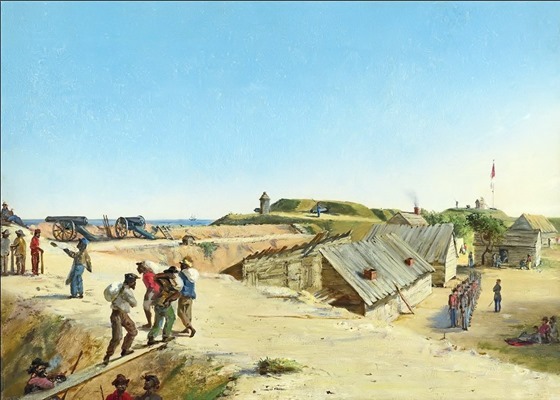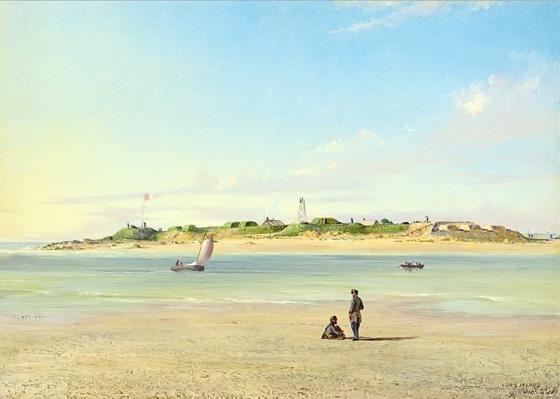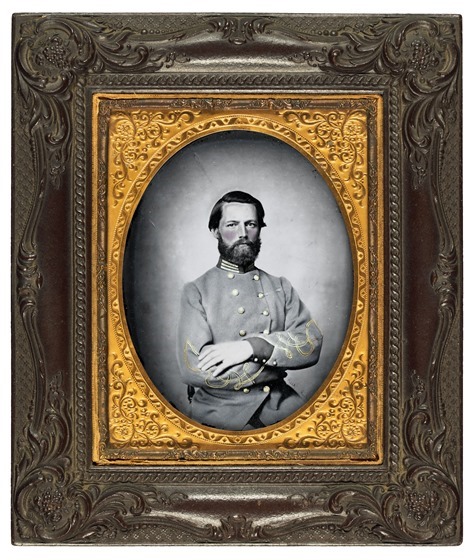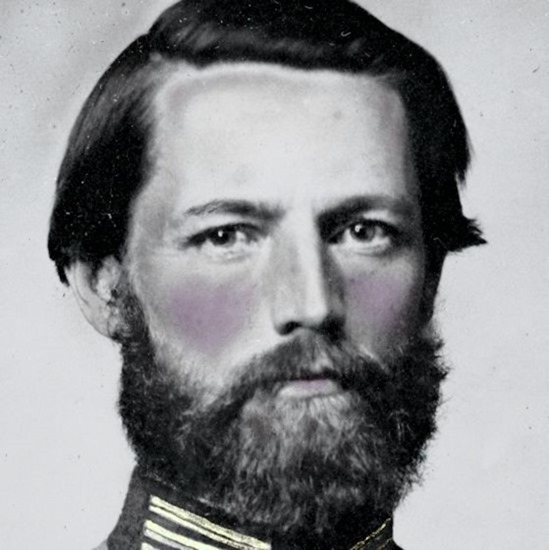December 4th.—My husband bought yesterday at the Commissary’s one barrel of flour, one bushel of potatoes, one peck of rice, five pounds of salt beef, and one peck of salt—all for sixty dollars. In the street a barrel of flour sells for one hundred and fifteen dollars.
Wednesday, December 4, 2013
4th. Considerable movement among the troops. Beers and Woods up from the 2nd Ohio. Played considerably at checkers with the boys. Saw paper of the 27th. Several scouting parties sent out and appearances of rebs leaving Tennessee for W. Virginia. Sent letters yesterday home and to Fannie.
Bridgeport, Friday, Dec. 4. Awoke at dawn, the ground was white with frost and blankets stiff, although we slept warm. The 12th Battery succeeded in getting over some time during the night. “Ned” gone from the tree. I started in search walking brisk for an hour over the hills and high brush to no avail. Found our boys in squads by fires, having suffered severely during the night. Most of them had no blankets. Returned. Evie started and soon returned astride a fine specimen in the shape of a “sorrel crowbait”, mane and tail closely shaven and points very prominent; but he could carry the harness, so he would do. No signs of moving with the batteries. We have nothing to eat, and by this time quite hungry, which induced us to push on in an independent squad. Two miles out found “Ned” standing innocently at a fire, held by an infantry man. Of course I traded. Passed the 1st and 2nd Brigade in camp, also the Division headquarters. Found grain on roadside near Whiteside. Halted to let horses eat. Passed by General Smith and Brigade. Captain Dillon halted and spoke gruffly to us, but finally rode on, and we followed after him. Made serious attempts to buy cornbread of citizens or hard-tack from trains going to the front, but failed. Joined by D. J. Davis, E. F. Hayes and W. H. H. Booth. We journeyed on together.
The sun was very warm, the frozen ground converted into mud. I was afoot. Noon came and hunger became more pointed. We halted to rest in sight of a camp, a brigade in winter quarters. “Council of war” held and the following program determined upon. E. W. E. and E. F. Hayes were to take the horses and go to the above-mentioned camp and procure something to eat regardless of expense, while we went to “Mica Jack Cave” to await their return. Visited this stupendous piece of God’s handiwork and proceeded into it as far as daylight would show us the way. A truly impressive scene, solid rock under one’s feet, pure crystal water trickling down its walls, streams fell from above on * * * of rock, which by constant trickling were now smooth and symmetrical. On all sides long ranges of leeches were arranged for saltpetre works. The earth out of which it was obtained was brought from the entrance of the cave, the best of it five miles, in barge vats at the mouth for boiling it down. At length the boys came, having succeeded to a charm, as they had a box of condemned crackers thrown aside (being mouldy) out of which they filled their haversacks, and which to us tasted sweeter than honey. We ate heartily and thankfully of these musty crackers and water from the cave, after which I felt much stronger.
Seven miles to Bridgeport, which we made easily by 4 P. M Endeavored to buy our supper, but the hungry boys of the 1st and 2nd Brigades had cleared the town. Waited until after night for the arrival of the rest of the boys, as we hoped they would have rations, but as they did not appear, D. J. D., E. W. E. and myself started in search of camping ground. It was very dark and we wandered across the large flat covered with logs, stumps and rifle pits in search of the camp of the 3rd Division, from one camp fire to another, until at last we found the train loaded with crackers. Dan succeeded in filling his haversack with crackers from behind a wagon. Honest, for a hungry man. Built a large fire by a dead tree, made our bed in the leaves, and after eating a few dry crackers, retired for the night, tired and rather lonesome.
Friday, 4th—The rebels seldom show themselves near our front. The loss of Chattanooga and Knoxville is a staggering blow to them. News came today that General Grant had another engagement with Bragg, near Dalton, Georgia, and again whipped him.
December 4.—On Friday last there was a severe fight on the Rapidan, at Germanna Ford. The enemy were splendidly repulsed; but my dear Raleigh T. Colston, Lieutenant-Colonel of the Second Regiment, was shot through his left leg, which was amputated on the field. I thank God that he is doing well, and feel so thankful that his life was spared! His mother was in Powhatan, on a visit to one of her daughters; but, becoming uneasy at seeing that General Edward Johnson’s Division had been engaged, immediately came to Richmond. The cars arrived at night, and she came directly to our rooms. We were surprised to see her, and I, supposing that she had heard of her son’s misfortune, was about to say what I could to relieve her mind, when she exclaimed, “I know that my sons are safe, from your countenance.” “Yes,” said I; “W. is safe, and R. is doing well; he was wounded in his leg.” “Severely?” she asked. “His left leg has been amputated below the knee; he is at the University, under the care of Mr. and Mrs. Minor and his sisters, and is doing remarkably well. Colonel Ruffin received a telegram to-day, and I a letter.” She passed her hand across her eyes for a minute, and said, “Thank God, his life is spared!” Next morning she left us for the University.
General Bragg has met with a repulse in the South-west, and was pursued; but, being reinforced, has again attacked the enemy and repulsed them. This occurred in the Northwestern part of Georgia. The papers say that the enemy under General Grant has retreated towards Chattanooga. Longstreet, when last heard from, was at Knoxville. Meade, on the Rapidan, after having been in line of battle for several days, has fallen back, finding that General Lee was ready to meet him.
Friday, December 4th.—Reported that Longstreet was repulsed at Knoxville.
Camp White, December 4, 1863.
Dear Uncle: — Lucy and I have considered your bulletin announcing your determination to hold Birch. I now write to give you fair warning that the Twenty-third has re-enlisted for the war. We are entitled therefore under a late order to be furloughed in a body. One company has gone to Ohio already, and more are preparing to go as soon as the situation here will allow. Now, if you want war we can give it to you. I can take companies enough of veteran volunteers to recapture our boy. So be on your guard.
We are threatened with a Rebel invasion again. If they don’t come after us it looks now as if we should go after them. When this is over our men will generally go home, and I am pretty likely to go also. About the last of this month or early in January if matters go well I shall probably visit you. All well here.
Let Birch write to his Grandma Hayes as often as he is disposed to write at all. She is very much pleased with his letters. — Good-bye.
R. B. Hayes.
S. BIRCHARD.
Painting by Conrad Wise Chapman.
“Here are the barracks of the soldiers. This being an extreme point, there was always a force ready in case of attack. Negroes are at work putting up breastworks, under the supervision of an over-seer. Another object to be seen is the lookout sentinel.” – Conrad Wise Chapman, 1898
Painting by Conrad Wise Chapman.
“This is the extreme end of Sullivan’s Island, toward the enemy on Morris Island, and shows the views the Yankees had of the battery. The two men shown are Lieutenant Martin, of Charleston, and one of his friends.” – Conrad Wise Chapman, 1898
Captain William W. Cosby of H Company, 2nd Virginia Light Artillery Regiment in uniform.
__________
Close-up crop:
__________
approximate half-plate ambrotype, hand-colored ; 20.6 x 17.5 cm (frame)
Photographer: Charles R. Rees.
Liljenquist Family Collection of Civil War Photographs; Ambrotype/Tintype photograph filing series; Library of Congress Prints and Photographs Division.
Record page for image is here.
__________
 Note – This image has been digitally adjusted for one or more of the following:
Note – This image has been digitally adjusted for one or more of the following:
- fade correction,
- color, contrast, and/or saturation enhancement
- selected spot and/or scratch removal
- cropped for composition and/or to accentuate subject matter
- straighten image
Civil War Portrait 113












